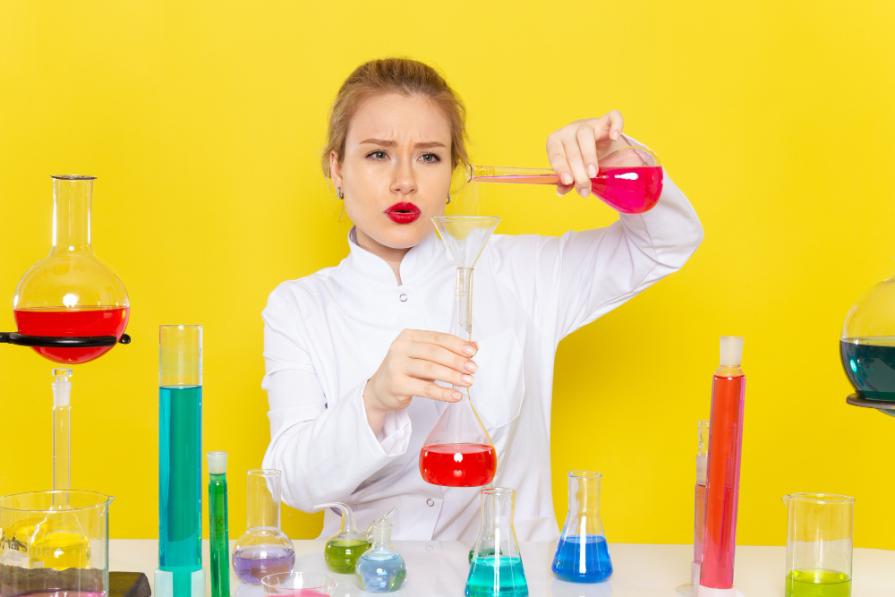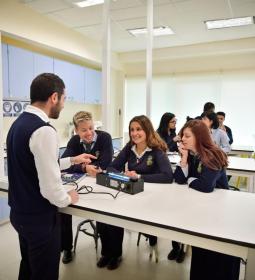Students study modules on chemistry, biology, human physiology, pharmaceuticals and pharmacology. Most diplomas in pharmaceuticals combine academic research with additional professional training, professional pharmaceutical skills, legal and ethical studies, and ways to interact with patients.
Students master the technology of forming prescriptions, study drugs, clinical practice. While studying pharmaceuticals, students will specialize in a specific position (for example, developing new drugs or caring for patients), a specific area of medical care (for example, infectious diseases or caring for the elderly).

Requirements for applicants for a degree in pharmacy: knowledge of chemistry at a high level together with biology, physics, mathematics. Universities conduct a careful selection for pharmacy programs, applicants must have excellent grades in basic subjects, confirm a high level of English proficiency.
The types of pharmaceutical programs differ depending on where you study pharmaceuticals:
- Bachelor of Arts in Pharmacy (BPharm)
- Master of Pharmacy (MPharm)

Pharmaceutical courses usually include lectures, seminars, and practical exercises. Leading USA universities from list offer internships while studying. The assessment is carried out on the basis of theoretical and practical exams, coursework.
Best pharmacy & pharmacology universities in USA 2026 - QS World University rankings
| 1 | Harvard University |
| 2 | Johns Hopkins University |
| 3 | University of North Carolina, Chapel Hill |
| 4 | University of California, San Francisco |
| 5 | University of California, San Diego (UCSD) |
| 6 | University of California, Los Angeles (UCLA) |
| 7 | Yale University |
| 8 | University of Michigan-Ann Arbor |
| 9 | Columbia University |
| 10 | University of Washington |
| 11 | University of Texas at Austin |
| 12 | University of Pennsylvania |
| 13 | Duke University |
| 14 | Purdue University |
| 15 | Vanderbilt University |
| 16 | University of Minnesota Twin Cities |
| 17 | Cornell University |
| 18 | University of Illinois at Chicago (UIC) |
| 19 | University of Wisconsin-Madison |
| 20 | Rutgers University–New Brunswick |
| 21 | The University of Texas Southwestern Medical Center at Dallas |
| 22 | Boston University |
| 23 | Emory University |
| 24 | New York University (NYU) |
| 25 | The Ohio State University |
| 26 | The Scripps Research Institute (TSRI) |
| 27 | The University of Texas M. D. Anderson Cancer Center |
| 28 | University of Florida |
| 29 | University of Pittsburgh |
| 30 | University of Utah |
| 31 | Baylor College of Medicine |
| 32 | Icahn School of Medicine at Mount Sinai |
| 33 | The University of Arizona |
| 34 | University of California, Irvine |
| 35 | University of Iowa |
| 36 | University of Maryland, Baltimore |
| 37 | University of Mississippi |
| 38 | University of Southern California |
| 39 | North Carolina State University |
| 40 | Northeastern University |
| 41 | Pennsylvania State University |
| 42 | University at Buffalo SUNY |
| 43 | University of California, Santa Barbara (UCSB) |
| 44 | University of Cincinnati |
| 45 | University of Kansas |
| 46 | University of Kentucky |
| 47 | University of Rochester |
| 48 | University of South Florida |
| 49 | Virginia Commonwealth University |
| 50 | Georgetown University |










